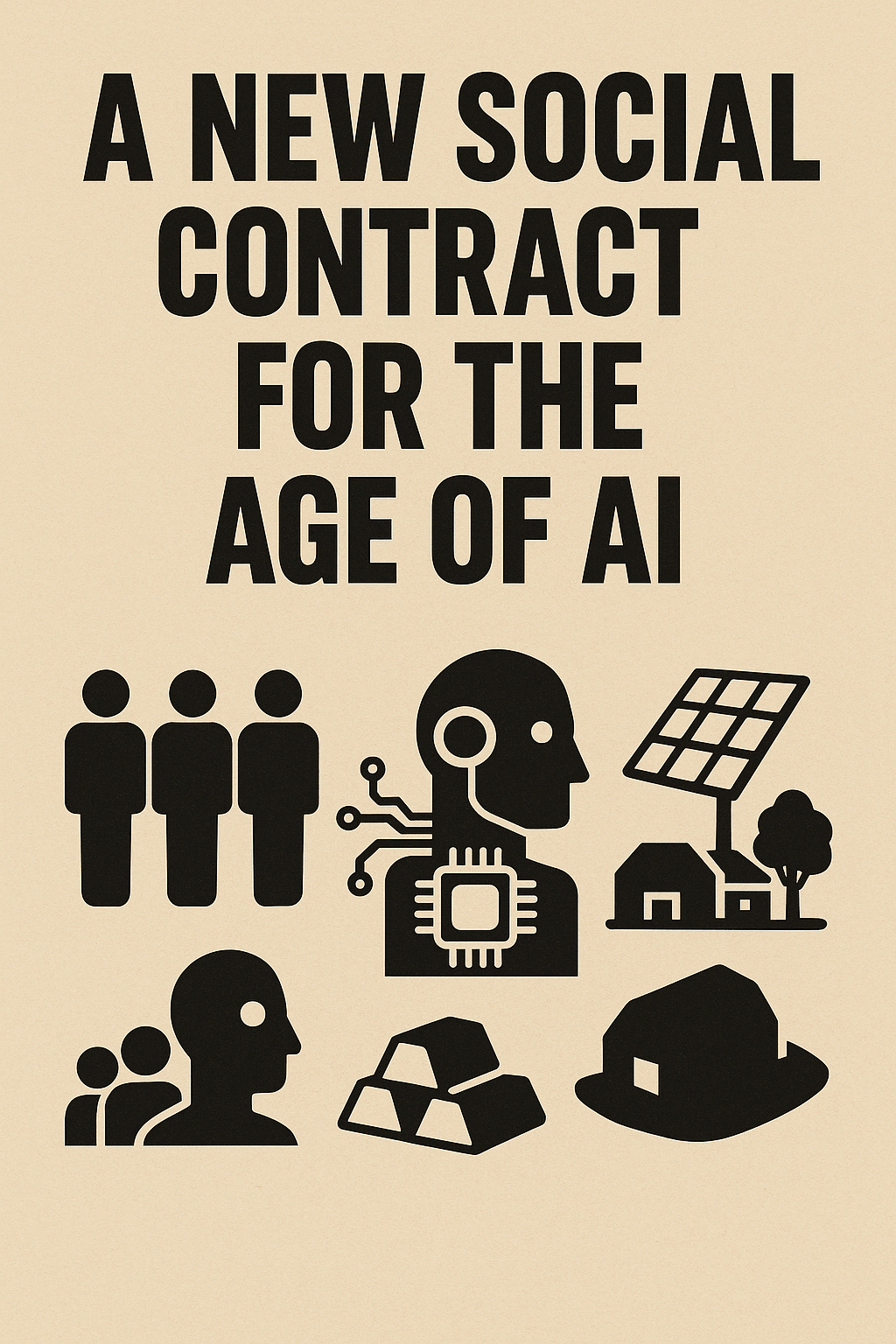Human history has always revolved around one critical question: who controls the means of production?
For centuries, it was land. Then, with the industrial revolution, it became factories and machinery. Today, the means of production is no longer steel or steam—it is Artificial Intelligence. And the troubling reality is that this new engine of productivity is already in the hands of a few: Musk, Ellison, Gates, and their peers. Billionaires now own the world’s most powerful technology, and with it, the ability to displace entire populations of workers.
The old social contract—the one born of industrialization, unions, and the fight for labor rights—is breaking. The proletariat are about to be displaced, not by a rival class of workers, but by code and computation. The Bourgeoisie of our era are software oligarchs, and AI is their machinery. Unless we act, this imbalance will harden into a new digital feudalism.
The Coming Displacement
Let’s not sugarcoat it: AI will replace most jobs as we know them. From call centers to logistics, accounting to medicine, the efficiency gains are too overwhelming. Capital owners will see exponential growth, while workers—stripped of bargaining power—will face mass redundancy.
It’s not hard to imagine a world where a few corporations own the “AI engines” that power economies, leasing intelligence itself like oil or electricity. In such a world, wealth consolidates faster than ever before. Political influence follows. And ordinary people, cut off from ownership, are left with diminishing scraps.
That’s not a social contract—it’s a death warrant for the middle class.
Why We Need a New Social Contract
The old Marxist battle cry was about workers owning the factories. The new battle cry must be about people owning the algorithms, the data, and the infrastructure of the AI age. If AI is the means of production, then the means of AI must belong to the many, not the few.
This is why we need a new social contract—one that recognizes AI as a shared resource, a commons that should fuel human flourishing rather than deepen inequality. It is not charity; it is survival. If we do not democratize ownership of this technology, we will watch societies unravel under the pressure of mass unemployment, wealth hoarding, and disillusionment.
Enter Ndeipi: Leveling the Playing Field
Ndeipi was born from this conviction. Unlike projects that depend on venture capital and bend to billionaire agendas, Ndeipi has taken no money from VCs. The token is entirely self-funded, owned by the people who believe in its mission.
Where will the resources go? Into AI compute, solar farms, gold mines, and land—the bedrock of real-world value. Not speculative paper, but tangible infrastructure. By tokenizing ownership and tying it to productive assets, we give ordinary people access to the returns of the future economy.
Ndeipi is not just a token; it is a new contract between technology and society. It says:
- No one should be locked out of the new AI economy.
- Wealth must be shared, not hoarded.
- The future belongs to builders, dreamers, and communities—not to oligarchs with server farms.
Toward a Shared Future
History shows us that revolutions are born when the tools of production outpace the contracts that govern them. The printing press upended monarchies. Factories upended feudalism. AI will upend capitalism as we know it—unless we reforge the contract.
The question is simple: will AI be a weapon of consolidation or a tool of liberation? Ndeipi chooses liberation. By investing in real assets and distributing ownership fairly, we can write a new story for the 21st century—one where AI and capital markets serve humanity, not enslave it.
This is not idealism. It is necessity. The social contract must evolve.
And the time is now.

Leave a Reply